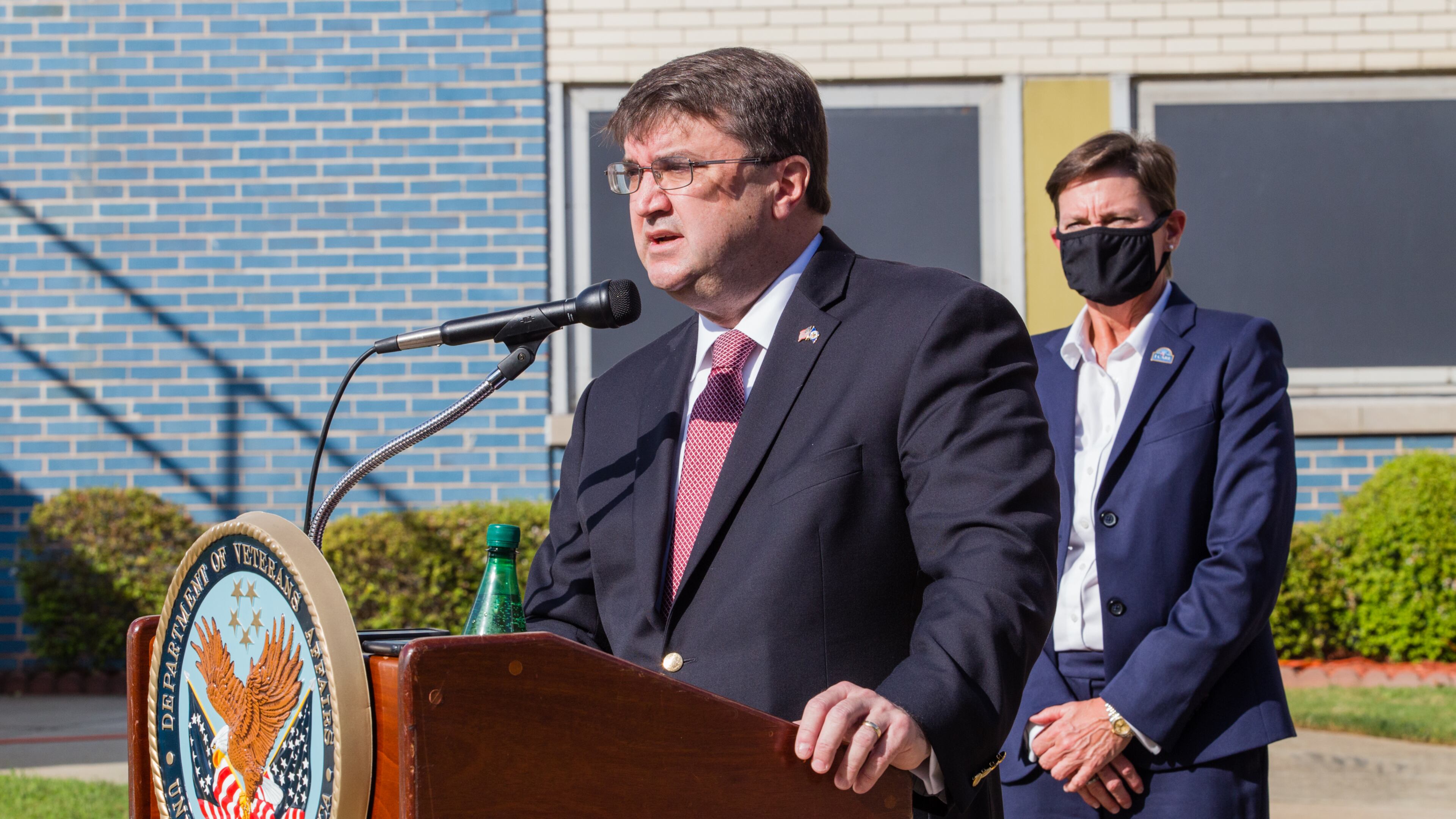VA chief expresses confidence in Atlanta hospital leaders


The vast majority of Department of Veterans Affairs clinics across the state will remain closed to face-to-face visits until there is a significant downward trend in the number of coronavirus infections, VA officials said Friday.
Department Secretary Robert Wilkie, in Atlanta to tour the Atlanta VA Health Care Center in Decatur and get updates on its COVID-19 response, pointed out that VA doctors in the region have completed more than 20,000 telehealth appointments a month during the pandemic.
“That means we are reaching veterans where they live, particularly in rural Georgia,” Wilkie said.
Some veterans have expressed concerns about telehealth appointments, saying it’s difficult to get scheduled and that they worry about receiving the right diagnoses and treatment. Some don’t have the technology for online appointments.
And, this summer, the VA has been transitioning to a new protocol in which some veterans qualify for getting treatment outside of the VA system. There are complaints that the changes are slowing and confusing the process.
During the pandemic, the Atlanta VA Health Care Center has been open for emergency and critical care and some surgery. But only a few of its 23 satellite clinics across North Georgia have been open, for minor procedures such as blood draws.
Wilkie said it was important to close the clinics to help limits the spread of COVID-19, especially because a large percentage of veterans are older and most susceptible to the disease. At least 82 veterans being treated in Georgia by the VA have died from COVID-19.
Hospital director Ann Brown said that, before the clinics can reopen, she is looking for a downward trajectory in infection and hospitalization rates of “several weeks.”

In mid-August, Georgia had the highest numbers in the nation for per capita transmission of the virus. The latest White House Coronavirus Task Force report, issued Sunday, dropped Georgia to seventh. Georgia’s rate of new infections remains roughly double the national average.
Wilkie pointed out that other improvements being made at the hospital that will help veterans. The problematic phone system, which has frustrated veterans to no end when trying to make appointments, is being replaced. The hospital, which reported last October that it had more problems hiring medical staff than any of the other 140 VA hospitals in the nation, is improving. Previously, it took up to a year to on-board a new doctor or nurse.
“In many cases, they have cut it down to three to 10 days,” Wilkie said.
He expressed confidence that Brown and other managers who have been brought in during the last 18 months are turning the long-troubled facility in the right direction. The Atlanta hospital has received some of the lowest evaluations in the nation in recent years, and it ended up dead last on the 2019 employee survey.
Brown’s administration has not been without problems. Last fall, the hospital’s surgical wing was shut down for months because of problems, including poor sanitation and smells. Also, last fall, a cancer patient in the long-term care facility was found by his daughter covered in more than 100 ant bites. He died shortly after.
An investigation found problems at the facility were caused and exacerbated by a pervasive lack of leadership and accountability, repeated internal communication failures, inappropriate staffing, failures by cleaning staff, lack of proper supervision, and a work culture that lacked a sense of urgency and failed to communicate with veterans’ families.



